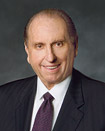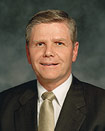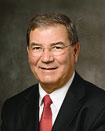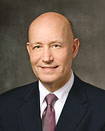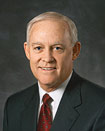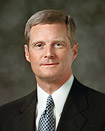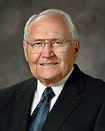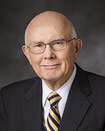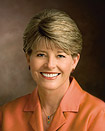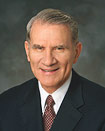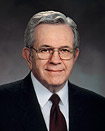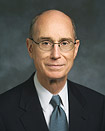This entry is part of my general conference application series.O That Cunning Plan of the Evil One, by M. Russell Ballard
Of the Quorum of the Twelve Apostles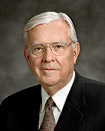
Have you ever smelled someone who passed by or that you live/work with that was experiencing a time of bad body odor? Each time I do I wonder if I smell bad to others but just can't smell myself, and no one has had the heart to tell me about it.
As I ride my bike to/from work, I can smell if a person in a passing car is smoking, even if they travel by at 50 mph. Similarly, I can tell if a person smokes, or lives in a smoking home, even if they're not currently smoking by the tell-tale signs and smells.
I thought of these two things as I read Elder Ballard's talk. Sometimes what is readily apparent to others (e.g. bad smells or indicators of addictive behavior) is criticized or stigmatized quite heavily, when there is the possibility of much greater evils or addictions that aren't apparent.
It's fairly easy to determine if someone is addicted to smoking, but you may not know if someone else is secretly addicted to gambling.
You may pick up on the visible signs that someone is addicted to drugs, but will not know that someone else spends hours a day involved in addictive pornographic behaviors.
You may perceive someone who is apparently addicted to bad or unhealthy foods, but you may not recognize your own addiction(s) (say, addicted to a cell phone).
Addiction seems to be something that is readily despised in others, but hard to distinguish in self.
As he compared the addictive lures of Satan to the flies of a fly fisherman, video clips showed in the background of Elder Ballard's talk. I liked the combination of the allegory and the imagery:
The goal of the fly fisherman is to catch trout through skillful deception. The adept fisherman studies trout behavior, weather, the water current, and the types of insects trout eat and when those insects hatch. He will often craft by hand the lures he uses. He knows these artificial insects embedded with tiny hooks need to be a perfect deception because the trout will identify even the slightest flaw and reject the fly.
What a thrill it is to watch a trout break the surface of the water, inhale the fly, and resist until it is finally exhausted and reeled in. The test is the pitting of the fisherman’s knowledge and skill against the noble trout.
The use of artificial lures to fool and catch a fish is an example of the way Lucifer often tempts, deceives, and tries to ensnare us.
Like the fly fisherman who knows that trout are driven by hunger, Lucifer knows our “hunger,” or weaknesses, and tempts us with counterfeit lures which, if taken, can cause us to be yanked from the stream of life into his unmerciful influence.
When we think of addiction, we often think of those things that are harmful, dirty, evil, or generally shunned by society; however, is it possible to be addicted to something that seems good? To answer this, let's take a look at the definition, given here by Elder Ballard and followed by some useful application:
According to the dictionary, addiction of any kind means to surrender to something, thus relinquishing agency and becoming dependent on some life-destroying substance or behavior.
Researchers tell us there is a mechanism in our brain called the pleasure center. When activated by certain drugs or behaviors, it overpowers the part of our brain that governs our willpower, judgment, logic, and morality. This leads the addict to abandon what he or she knows is right. And when that happens, the hook is set and Lucifer takes control.
It seems obvious that regardless of the substance or behavior, as soon as we give up our agency, the road becomes downhill to a bad place. Later, Elder Ballard included the following:
Remember, brothers and sisters, any kind of addiction is to surrender to something, thus relinquishing agency and becoming dependent. Thus, video-gaming and texting on cell phones need to be added to the list.
So, what are you going to do now? Here is an apostle saying that video games and cell phones should be included with alcohol, tobacco, pornography, and harmful drugs (including misused prescription drugs).
A few days ago, I removed many games and other applications from my cell phone (read more
here). I did this, in part, because of Elder Mazzagardi's words. The more motivating factor, though, was that my wife brought it up. It likely wasn't easy for her to do; how do you convince someone that what they think is harmless can be habit-forming and ultimately addicting?
If you're wondering how to know if something seemingly harmless is addictive, consider what you would do if a loved one asked you to give it up, or at least trim it back considerably. If you would react with disbelief (commonly called
denial), chances are, you are on the road to addiction.
The bottom line seems to be that addiction is dangerous, despite its flavor.
If you are concerned about addiction—and you should be!—Elder Ballard has an answer:
To those who are dealing with an addiction personally or within your family, I repeat, fervent prayer is key to gaining the spiritual strength to find peace and overcome an addictive craving. Heavenly Father loves all of His children, so thank Him and express sincere faith in Him. Ask Him for the strength to overcome the addiction you are experiencing. Set aside all pride and turn your life and your heart to Him. Ask to be filled with the power of Christ’s pure love. You may have to do this many times, but I testify to you that your body, mind, and spirit can be transformed, cleansed, and made whole, and you will be freed. . .
And for those of you who have fallen prey to any kind of addiction, there is hope because God loves all of His children and because the Atonement of the Lord Jesus Christ makes all things possible.
Although not mentioned explicitly in this talk, be aware that some addictions need professional help in addition to faith and fervent prayer.
I'm grateful for the reminder of the very real powers of temptation and addiction. Scary as it is that something so tempting and appetizing, no matter what it is, can lead to addiction and ruin, it's wonderful to be reminded that the Atonement of Christ provides safety, protection, and a way back, if necessary.
